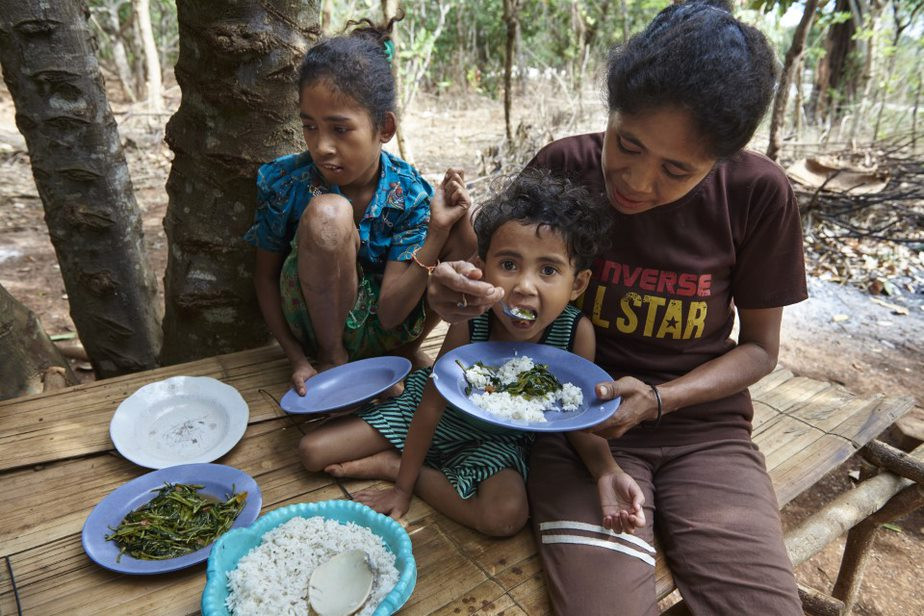Popular Reads
Top Results
Can't find what you're looking for?
View all search resultsPopular Reads
Top Results
Can't find what you're looking for?
View all search resultsMore Indonesian children may become malnourished amid pandemic, UNICEF warns
UNICEF has warned that job losses, an overloaded healthcare system and limited access to food supplies amid the current health crisis could exacerbate the already poor living conditions of children deemed most susceptible to stunting and wasting.
Change text size
Gift Premium Articles
to Anyone
T
he number of children suffering from malnutrition could spike in Indonesia as the government has struggled to stem the impact of the COVID-19 pandemic on the health issue, according to the United Nations International Children’s Fund.
In a statement issued on Tuesday, UNICEF warned that job losses, an overloaded healthcare system and limited access to food supplies amid the current health crisis could exacerbate the already poor living conditions of children deemed most susceptible to stunting and wasting.
UNICEF Indonesia representative Debora Comini said it was crucial that the government act swiftly to ensure the well-being of children amid the pandemic, particularly those from poor households.
“COVID-19 has hit vulnerable families the hardest,” Comini said. “Unless we urgently scale up prevention and treatment services for malnourished children, we risk seeing an increase in child illness and deaths linked to malnutrition.”
According to UNICEF data, more than 2 million Indonesian children have suffered from severe wasting, while more than 7 million others under 5 years of age experienced stunted growth prior to the pandemic.
Statistics Indonesia's 2015 Intercensal Survey (SUPAS) estimated that the number of children 17 years old or younger in the country was 79.47 million, roughly 30.1 percent of Indonesia's population of 266 million people in 2019.
Globally, the number of malnourished children under the age of 5 is predicted to increase by about 15 percent this year, according to UNICEF.
A recent survey conducted by Save the Children Indonesia found that reduced child welfare due to their parents’ loss of or decreased income, as well as limited support for children with disabilities, could increase the risk of malnutrition in 24 million toddlers across the country.
UNICEF urged the government to improve public access to staple food items and to continue gathering data from vulnerable households so as to minimize the risk of malnutrition.










